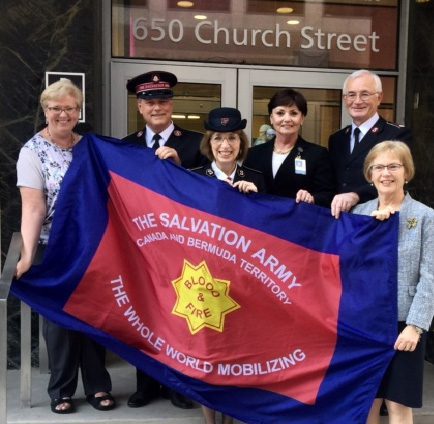The beds will communicate changes in patient’s skin condition to caregivers and staff.

The Salvation Army Toronto Grace Health Centre (TGHC) has been awarded $1 million from The Centre for Aging and Brain Health Innovation’s (CABHI) Industry Innovation Partnership Program to participate in research to advance pressure injury management systems for individuals living with dementia.
Pressure injuries, also called pressure sores or bedsores, can develop if someone spends too long sitting or lying in one position. Many people with dementia are bedridden or wheelchair-bound, and thus, at particularly high risk.
In partnership with Curiato Inc., an innovator of smart technologies to prevent pressure injuries, Schlegel Villages, a provider of long-term care and the Schlegel-UW Research Institute for Aging, the TGHC is advancing its role as a leader in wound care for patients receiving complex continuing care and rehabilitation.
Curiato Inc. will provide state-of-the-art “smart beds” capable of communicating changes in patient’s skin condition and monitoring of patient movement to caregivers and staff.
“This research project is an opportunity for the TGHC to advance our capacity to provide exceptional and compassionate care for our patients,” said Mary Ellen Eberlin, President and CEO of the TGHC. “As part of the Industry Innovation Partnership Program the hospital is contributing to science that will directly impact the quality of care for individuals living with dementia including those that require complex continuing care and rehabilitation.”
The TGHC is a 119-bed hospital located in the heart of downtown Toronto and is owned and operated by The Salvation Army. The facility provides medically complex and specialized care services to those individuals who require complex continuing care, post acute care rehabilitation and palliative care. As a “point” on the care journey the Toronto Grace supports recovery for individuals with the goal of return to the community.












